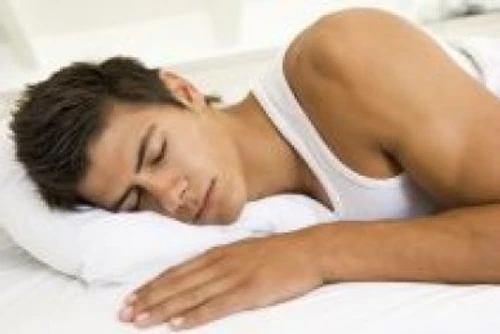
Therefore, they should not be neglected. Teenagers need up to nine hours of sleep per night, more than what an adult needs. This happens because, during the growth period, dreamless sleep plays a role in the growth process. It stimulates the development of the immune function, the nervous system, the skeleton and the muscles. Sleep disorders affect people of any age, from children to adults, teenagers representing approximately one third of those affected. The origin of sleep disorders is most often stress and anxiety. Other causes are sleepwalking and apnea (stopping breathing) during sleep. Eliminate stress! The events of the day, traumas, fears and fears, obsessions, unresolved problems can lead to insomnia. This problem can be alleviated by ignoring negative thoughts, with the help of a few relaxation techniques applied before bed. For example, the young man is recommended to look at the ceiling, at a fixed point, to banish thoughts from his mind and to relax his whole body, to imagine that he is getting hard and that he is “sinking” into the mattress. In the long term, however, it may be more useful to communicate with parents or a psychologist and try to get to know their problems better and find a solution.
Light therapy has an effect Delayed sleep disorder often begins in adolescence and involves a “delay” in the hours at which the affected person falls asleep and wakes up. The young man can only fall asleep late and it is difficult for him to wake up early. If he has to go to school in the morning, he will wake up tired, because his sleep, although normal, was insufficient. 40% of cases of delayed sleep disorder are inherited. The problem is treated by morning phototherapy. The adolescent will be exposed in the morning to a light stronger than that of the light bulb, but weaker than that of the sun. The doctor will make recommendations in this regard. Sleepwalking can be treated
A rare condition, sleepwalking can also affect teenagers. He gets out of bed, can move and speak, without remembering the event when he wakes up. Drug treatment controls the disease, and preventive measures can reduce the frequency of episodes and the severity of their consequences. Thus, the young person must avoid physical exertion and activities that increase energy during the evening and try to follow a regular sleep schedule. Parents should be instructed to lock doors, windows and remove objects that could cause injury during the episode. They should also try to get the young person back to bed using gentle words and gestures and not intervene suddenly unless he is in danger.
What can be done in case of apnea?
This problem occurs in children with polyps and those with enlarged tonsils. Due to the narrowing of the duct through which the air circulates, the teenager breathes with difficulty, snores and can even take breaks in breathing for up to five seconds. The next day he finds him tired and sleepy. The problem is fixed surgically, by removing the obstructions from the air.
Due to the body’s lack of rest, sleep disorders can lead, over time, to concentration, attention and memory problems. Also, the teenager may become irritable, impulsive or depressed. That is why the problems must be treated seriously, with openness and sincerity, together with the doctor and the psychologist.
Read also:






































